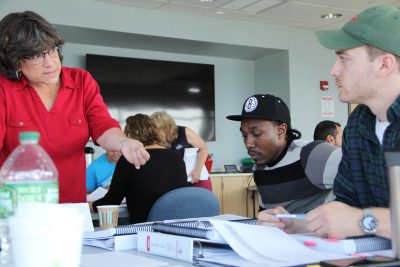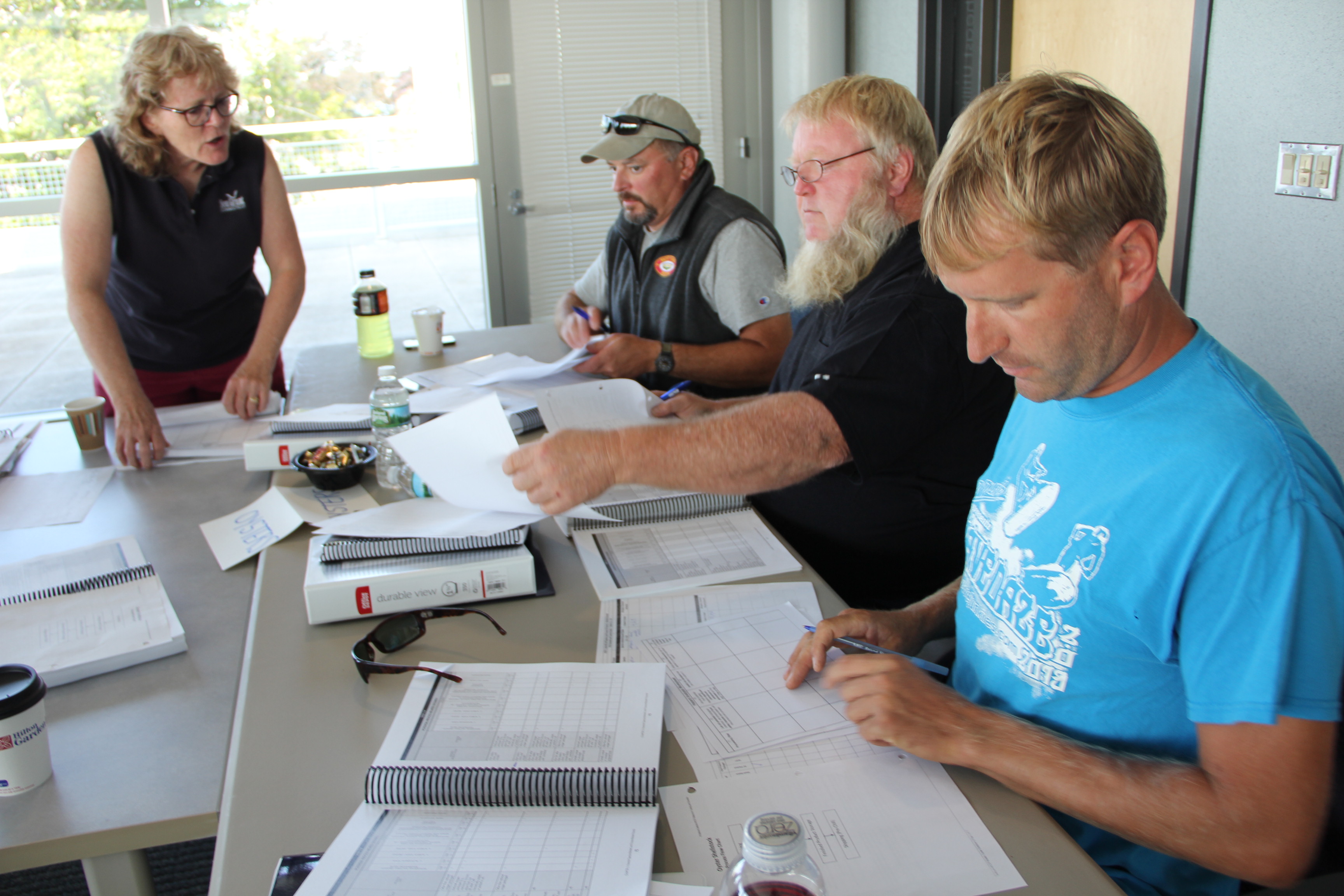Before a bowl of clam chowder or a freshly grilled swordfish steak ends up on a restaurant diner’s plate, specially trained seafood handlers will have been working to eliminate any risk of contamination or hazards that could cause illness.
Many of those handlers will have learned their skills in training offered by Connecticut Sea Grant, including the most recent one from Sept. 12-14.
The three days of training took place at the Avery Point campus of the University of Connecticut. There, 22 seafood processors, wholesalers and dealers in products ranging from sushi to oysters to soups learned how to identify and control hazards associated with fish and shellfish to keep the public safe and their businesses running smoothly. Completion of the HACCP (Hazard Analysis and Critical Control Points) classes are required by a 1997 federal Food & Drug Administration regulation.

“Any seafood company has to have at least one HACCP-trained person,” said Nancy Balcom, associate director of Connecticut Sea Grant and co-teacher of the class with Lori Pivarnik, coordinator of food safety outreach and the food safety education program at the University of Rhode Island. While students in the recent class came from Connecticut, Rhode Island, Massachusetts and New York, previous classes have drawn from outside the Northeast.
After completing the nationally standardized course developed by the Seafood HACCP Alliance of seafood scientists, regulators and industry members, students receive a certificate of training completion from the Association of Food and Drug Officials. They then go back to their workplaces to write site-specific plans for potential seafood safety hazards for the products they handle, applying HACCP principles, Balcom said. She said HACCP plans are then implemented by each company to manage and minimize the risk of seafood-borne illnesses.
Training 75 to 100 seafood processors and regulators each year, Balcom said she and Pivarnik have trained more than 2,000 individuals in HACCP principles over the past 20 years. Sessions are offered alternately between Avery Point and URI in Narragansett. No exam is given to students at the end of the class, but they build experience developing plans for different seafood products as a group exercise to help them immediately apply what they learn once they return to their own businesses. That is in everyone’s best interest.
“The test comes when the FDA comes in and inspects them,” Balcom said.
For information about future HACCP classes, contact Balcom at: nancy.balcom@uconn.edu.

Nancy Balcom, associate director of Connecticut Sea Grant, talks to students in a HACCP class on Sept. 13.